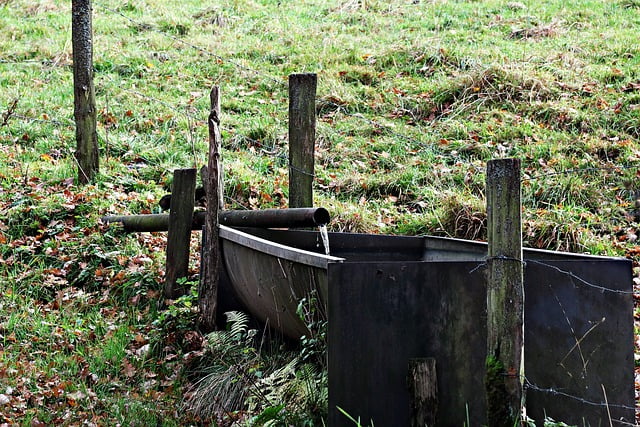by Lori Marion, Vice President
Like every creature, sheep need to eat. They need a source of energy and protein, and various nutrients like Vitamins A, D, and E, all of which they get from food. And like most every creature, sheep need water. Dehydration has been shown to reduce feed intake and growth. The amount of liquid water sheep need will vary widely, based on their productivity stage, their diet, and the temperature and humidity.
According to the Merck Veterinary Manual and North Dakota Extension service, a unbred, non-nursing ewe, in a temperate climate, in winter, eating dry forage (not concentrates), drinks about 1 gallon daily. Under the same conditions, rams might need a bit more. A nursing lamb up to 20 lbs needs as little as 0.3 gallons daily, while a lamb over 60 lbs has higher needs; 1 gallons to 1.5 gallons daily. A pregnant ewe needs up to 2 gallons daily, and a nursing ewe, especially one with multiples, needs up to 3 gallons daily.
And all this is why the stock tank empties so quickly! Or at least it would be good if it emptied quickly, indicating the sheep are in fact drinking the water, avoiding dehydration, and supporting body condition maintenance, growth, reproduction, and milk production.
If your sheep are out grazing forage with a high moisture content, in temperate weather, they will have far less need for fluid water to drink. If you have snowfall in winter, soft snow with no ice cover can often supply sufficient water for dry ewes, grower lambs, and rams. They will expend energy maintaining their body temperature due to cold weather, as well as consuming snow. A retired commercial rancher who range-fed his 4000 ewe flock is convinced from his observations that sheep need more water in winter – supporting the higher metabolism needed to keep warm, and energy to melt the snow they ‘drank’. He made supplying fluid water a higher priority than he might have otherwise, even with snow available.
The quality of the water is important too. Forcing livestock to drink water with unsafe levels of salts, nitrates and sulfates can upset the animals’ water balance, leading to dehydration, and toxins can cause multiple issues from diarrhea to respiratory and neurological issues. Fecal contamination can reinforce parasite cycles. Pumped groundwater or surface water may need to be tested for levels of nitrates, sulfates and total salts, and fecal contamination if there’s a risk in your environment. Both floods and drought can change the quality.
So, while you focus on your pastures and feed, give a bit of thought to the water your sheep need too!

